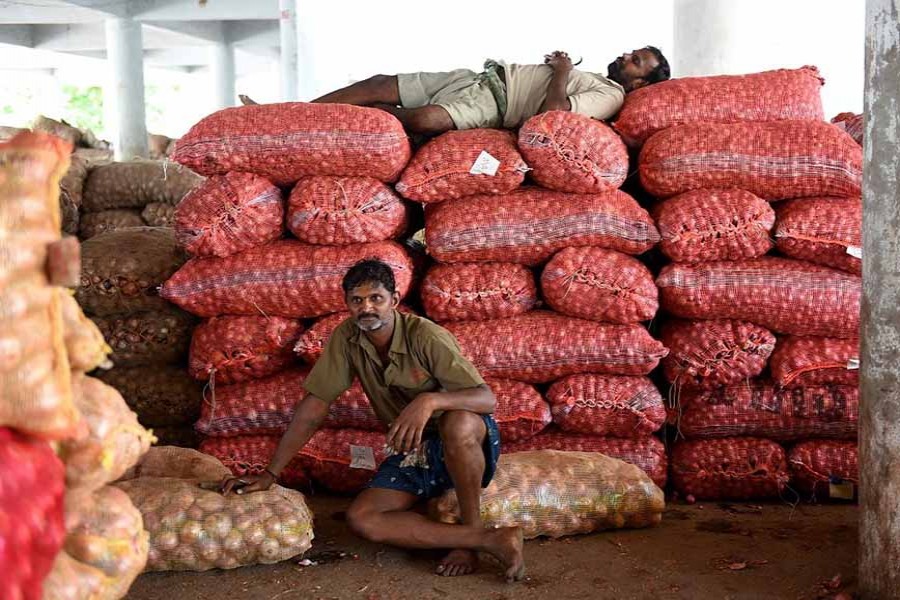Consumers have no respite from price hike of essential commodities. If it is rice today, it could be lentil tomorrow. The market is perennially unstable in this part of the world. The fixed and low-income people are having a tough time in recent months due to the abnormal rise in the prices a number of consumables, including rice, vegetables and onion. The record hike in the prices of rice, the most consumed cereal of this country, has put the poor and low-income people in a difficult situation. The government's market intervention mechanism has failed to produce the desired results, mainly due to faulty procurement; it has imported a substantial volume of non-parboiled rice though the vast majority of consumers are habituated to consuming parboiled type of the cereal.
The prices of rice have, however, been stabilised to a large extent but that too at a considerably higher level than what was the case even six months back. The price-trend might see a reversal soon as the harvest of Aman rice is not far away. But what is giving substantial pain to consumers lately is onion, a pungent-smelling tuber vegetable that is widely consumed as a spice in this country. The local variety of onion is now selling at prices between Tk.80 and Tk.85 a kilogramme (kg) and the imported ones between Tk. 65 and Tk.75 a kg at the retail level. The hike in prices of the item within last one month was more than 70 per cent. The traders attribute the abrupt rise in onion prices in domestic market to the hike in their import cost. Though locally grown onion meets a substantial part of the demand, a large volume of the vegetable is imported from neighbouring India. Since, the price of the item has gone up in the Indian wholesale market, this would obviously have an impact on the Bangladesh market. However, the impact has no doubt been beyond the rational one.
Market observers have raised a logical question: why should Bangladesh importers remain dependent on only one source for its import when there are other onion-exporting countries? Traders, however, show one particular reason---close proximity of India-- which saves their time and money. Yet they should shun their dependence on one single source and rather try to diversify the same. That is what prudent trading practices suggest. What is, however, most regrettable is the government's failure to monitor the market and take adequate preventive measures against any abnormal rise in the prices of essential items.
It is true that in a market economy, the government cannot control prices of any item, essential or otherwise. But, in a country where traders are unduly profit-hungry and often take recourse to foul means to fatten their profits, it has to take some extra measures for safeguarding the interest of the consumers. At least, two ministries-the ministry of commerce and the ministry of agriculture - have under their control a number of organisations that can monitor and research on the market condition of the essential commodities. On their advice, the government can hold discussions with relevant traders on issues of supply and price of any essential or sensitive item, well ahead of a crisis in the market. Similar suggestions were made also in the past, but to no avail. The relevant authorities, on the other hand, tend to become hyper-active when the price situation involving any essential item turns out to be very difficult to tame. There has to be a change in this type of attitude if the ministries concerned are really serious about their efforts to help the poor consumers.


